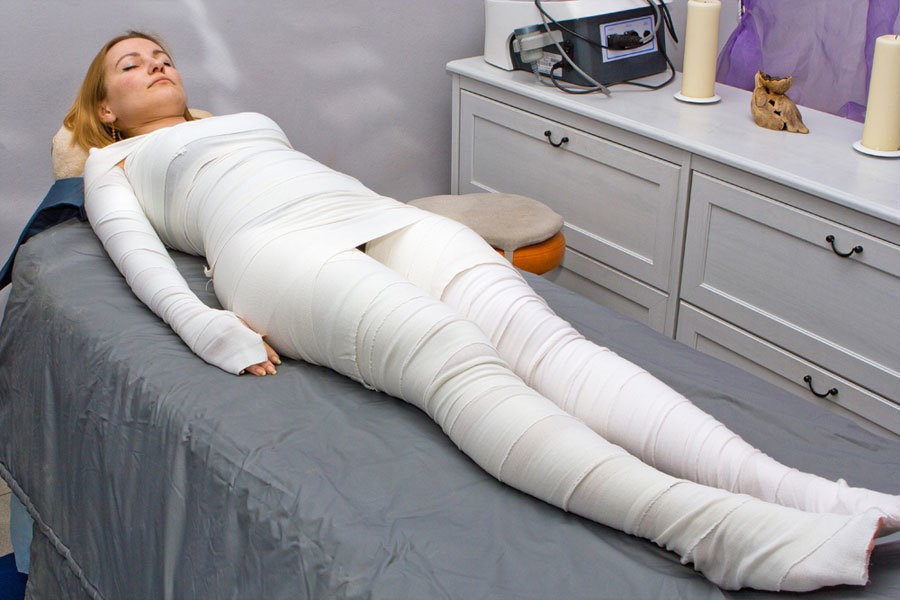Myths about weight loss wrapping

In the quest for weight loss, people often turn to various methods and products that promise quick and easy solutions. One such method that has gained popularity over the years is weight loss wrapping. These wraps come in various forms, from plastic wraps to herbal wraps, and are often marketed as a way to shed unwanted pounds effortlessly. However, it’s essential to distinguish between fact and fiction when it comes to these weight loss wraps. In this article, we will explore the myths surrounding weight loss wrapping and provide evidence-based information to help you make informed decisions about your weight loss journey.
Myth #1: Weight Loss Wraps Melt Away Fat
One of the most prevalent misconceptions about weight loss wraps is that they can miraculously melt away fat. The reality, however, is quite different. Weight loss wraps do not directly lead to fat loss. Instead, they temporarily reduce water weight and can make your body appear slimmer. These wraps typically work by causing your body to sweat, which may lead to short-term dehydration and the loss of water weight. While this can result in a quick drop on the scale, it doesn’t equate to permanent fat loss.
Weight loss is a complex process that involves creating a calorie deficit through a combination of diet and exercise. Fat loss occurs when your body burns more calories than you consume over an extended period. Weight loss wraps alone are not a sustainable or effective solution for long-term fat loss.
Myth #2: Weight Loss Wraps Detoxify Your Body
Another myth associated with weight loss wraps is that they can detoxify your body. Detoxification is the process of removing harmful toxins from your system. While some weight loss wraps may contain ingredients like herbal extracts or minerals, there is limited scientific evidence to support the claim that they detoxify the body.
Your liver and kidneys are your body’s natural detoxification systems, responsible for filtering and eliminating waste products. A healthy diet, plenty of water, and a balanced lifestyle are far more effective in supporting your body’s natural detoxification processes than relying on weight loss wraps.
Myth #3: Weight Loss Wraps Lead to Spot Reduction
Many people believe that weight loss wraps can help target specific areas of the body for fat reduction, a concept known as spot reduction. Unfortunately, spot reduction is a myth. When you lose weight, your body decides where it will burn fat, which is typically influenced by genetics. Weight loss wraps cannot override your body’s natural fat-burning processes.
To achieve fat loss in specific areas, you must focus on overall weight loss through a combination of diet and exercise. Over time, as you reduce your body fat percentage, you will notice changes in various areas of your body, but this cannot be attributed solely to weight loss wraps.
Myth #4: Weight Loss Wraps Provide Long-Lasting Results
Weight loss wraps may provide a temporary reduction in water weight, making you appear slimmer for a short time. However, these results are not long-lasting. Once you rehydrate, your body will regain the lost water weight. Weight loss wraps do not lead to sustainable or permanent fat loss, making them an ineffective option for those seeking lasting results.
To achieve and maintain long-term weight loss, it’s crucial to adopt a balanced and sustainable approach that includes healthy eating habits and regular physical activity.
Myth #5: Weight Loss Wraps Are Safe for Everyone
Weight loss wraps are not suitable for everyone, and there are potential risks involved. People with certain medical conditions, such as heart problems, diabetes, or skin sensitivities, should exercise caution when considering weight loss wraps. The process of excessive sweating can lead to dehydration and electrolyte imbalances, which can be dangerous for individuals with underlying health issues.
Additionally, some weight loss wraps contain ingredients that may cause allergic reactions or skin irritation. It’s essential to consult with a healthcare professional before using weight loss wraps, especially if you have any health concerns.
Conclusion
Weight loss wrapping is a trendy concept that promises quick and effortless results. However, it’s important to separate fact from fiction when considering this method for weight loss. Weight loss wraps can lead to temporary water weight loss and may provide a slight slimming effect, but they do not result in long-term fat loss or detoxification. Furthermore, spot reduction remains a myth, and weight loss wraps are not suitable for everyone.
If you’re serious about achieving and maintaining a healthy weight, it’s best to focus on a combination of balanced nutrition and regular exercise. Consult with a healthcare professional or a registered dietitian for personalized guidance on your weight loss journey. Remember that sustainable weight loss is a gradual process that requires dedication and a holistic approach, and quick-fix solutions like weight loss wraps are unlikely to yield the results you desire.

